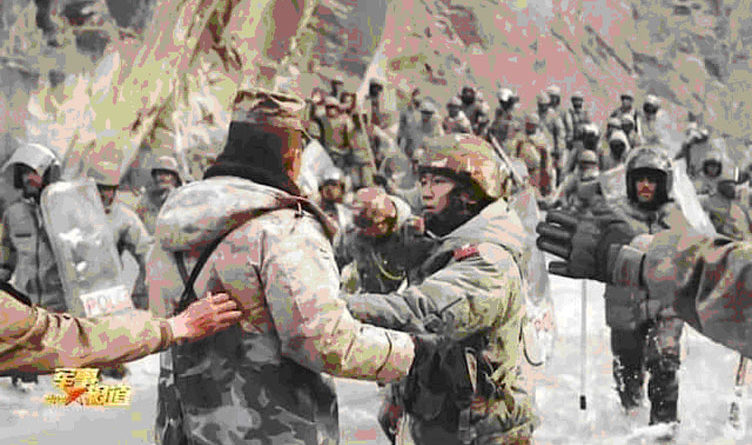New Details On Galwan Valley Clash Of 2020 Exposes Extent Of Chinese Coverup
Feb 4, 2022
While China continues to present fabricated stories around the border standoff with India in eastern Ladakh, yet another investigation has exposed the Dragon’s coverup. The Xi Jinping administration preferred to disown its military personnel who succumbed after drowning in the Galwan river on June 15, 2020, just to hide its setback, a new investigation has revealed.
New research has found that a total of 38 Chinese People’s Liberation Army soldiers died due to drowning while crossing the fast-flowing Galwan river on the night of June 15, 2020. India had stated that it lost 20 Bravehearts during the line of duty. China had claimed only four and disowned others. In February last year, they honoured these four soldiers and on that day only they accepted for the first time the casualties on their side.
According to the Australian newspaper The Klaxon, China had confirmed that only four of their soldiers were killed. Among them, only Junior Sergeant Wang Zhuoran reportedly drowned. The report was titled “Galwan Decoded”.
The investigative reports were drawn from the Chinese bloggers, citizens and media reports that have since been deleted by Chinese authorities.
June 15 Galwan Valley Clash
As per the Australian newspaper, on the night of June 15, 2020, Indian soldiers went to a contested area in the Galwan Valley to dismantle the Chinese encroachment. Lt Col Fabao and 150 Chinese troops were present there and instead of discussing the matter, he attacked the Indian troops. Immediately, he was besieged by the Indian soldiers.
As per the report, PLA battalion commander Chen Hongjun and soldier Chen Xiangron came to his rescue and started a physical scuffle with Indian troops using steel pipes, sticks and stones [When 3 Chinese soldiers died] PLA soldiers panicked into retreat.
The report further added that the PLA soldiers did not even have time to wear water pants. They decided to cross the icy water of the river in the pitch dark under the guidance of Wang. The river rose suddenly and ‘injured comrades kept slipping and (being) washed downstream’.
The newspaper further also mentioned that China has presented fabricated stories about the Galwan valley clash.
The report also stated that the troops had also clashed on June 6 in the Valley. Clash sparked over a temporary bridge in the Galwan Valley The report claimed that the violent clash of June 15 was sparked by the construction of a temporary bridge by the Indian Army on May 22.
Courtesy: Asianet

